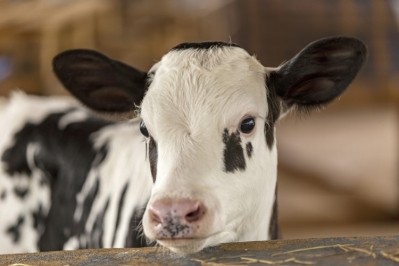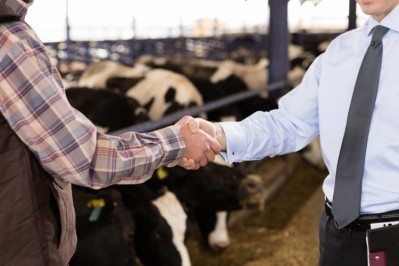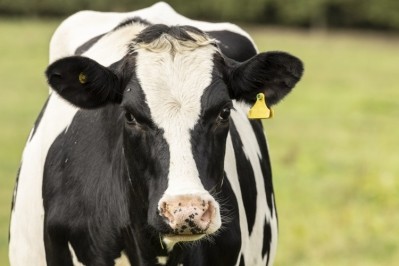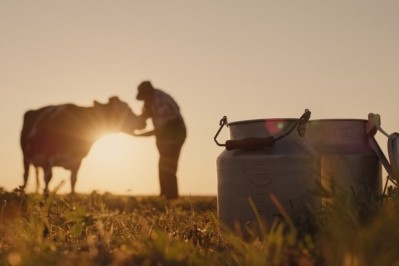‘Government has an important role to play’: Arla makes its case for government collaboration over labor shortages
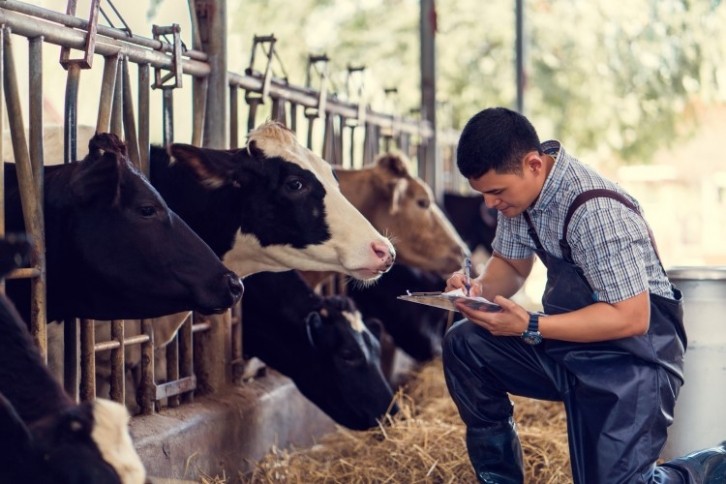
From horticulture to dairy and meat processing, labor shortages across British agriculture have had a significant impact on food production since Brexit and the COVID-19 pandemic.
In written evidence to the Environment, Food and Rural Affairs Committee investigating the labour shortages in the food and farming sector, the Royal Association of British Dairy Farmers said the decline in milk volumes during 2021 and 2022 was down to lack of staff. The body reported that milk deliveries to processors had been ‘declining weekly’ as many farmers dropped their milk output due to a lack of labor. Trade association Dairy UK echoed this conclusion, adding that labor shortages were placing the sector ‘under considerable stress’ and adding that processors were feeling an impact across all categories of labor, both by profession and skill level.
The independent review published its recommendations at the end of June 2023, suggesting that a multi-pronged approach where government and industry are closely involved was critical to resolving the skills gaps. But for decades, British agriculture has relied on migrant labor, with most workers hailing from the EU.
And while relieving some of these pressures could be done in the short term through more liberal visa policies, for example, the industry is largely focusing on revamping recruitment, training and marketing in a bid to attract more UK-based talent. From changing public perceptions about the sector to developing careers advice and making the next-gen farmers ‘a matter of national importance’, the independent review’s suggestions are geared more towards developing holistic, long-term solutions.
“We are not opposed to the use of the migration system to address shortages in the UK labour market,” a spokesperson for Arla told us. “In fact, we have consistently said that the Shortage Occupation List should include positions like herd manager where there are not enough such people in this country. However, a key element of the long-term solution is to attract more people who live in the UK into food and farming and to make it a career of choice, and that’s what we are calling for.”
But the co-op has also highlighted the urgency of the current predicament. According to a survey of Arla farmer owners, one in eight claim they could quit dairy farming due to labor shortages while around three fifths (57.5%) state they are finding it harder to find staff compared to 2019. To attract workers, farmers have put wages up by almost a quarter on average (22%) - yet very few applicants had the right skills. “The evidence we have seen suggests that farmers have in fact typically offered relatively generous packages to workers on their farms, often including free accommodation and many bills paid for, in addition to decent wages,” Arla’s spokesperson said.
“What we are seeing now is a genuine shortage of workers with the right experience. Our survey shows that nearly half of farmers (46%) told us that very few applicants have the right skills.”
In dairy, labor shortages often mean longer work hours for farmer owners as well as potential for producing less milk. Asked what evidence the co-op has that milk supply was being affected by the crisis, the Arla spokesperson said: “What our farmers are telling us from the survey results is that the impact of staff shortages and finding people with the right skills is significant enough for them to either cut milk production or consider reducing this in the future.”
Automation ‘cannot solve everything’
Three of the independent review’s 10 recommendations focus on technology and innovation. Automation is viewed as particularly important by the panel, which has suggested that government and industry should team up on promoting the adoption of automation technology to eliminate ‘existing barriers’. But Arla says that in dairy, there are skills that cannot be filled through technology alone.
“We have seen our farmer owners invest heavily in machinery that improved efficiency, for example with the introduction of milking robots,” the spokesperson said. “However, automation cannot solve everything when working with animals as the skill needed by our owners to care for their animals and bringing more people into industry is critical.”
Tackling the ‘knowledge gap’
But how does an industry that’s long relied on migrant labor attracts new workers from within the UK - and spruces up its public image at the same time? While Arla agrees that the industry has ‘a leading role’ to play in recruitment and marketing, research the co-op commissioned earlier this year highlighted how little younger generations knew about dairy farming – and is now calling on the government to play its part in closing the knowledge gap.
According to a survey conducted on behalf of Arla among 18-24 year-old Brits, a third (33%) didn’t know what a farmer’s job entailed; more than two thirds (67%) didn’t know about dairy farmers’ data-focused approach to sustainability, and nearly half (45%) didn’t realize that farmers were putting efforts towards lowering dairy’s climate impact. This is despite the fact that one in three stated they wanted a job that plays a part in tackling climate change.
Meanwhile, the independent review into the labor shortages has recommended that industry organizations should bear the brunt of improving pay, conditions and benefits, and developing careers advice and a marketing campaign. But Arla says the government should also shoulder some of this responsibility. The co-op published a four-point plan, asking government to increase support around the following areas:
- Educate careers advisors in Job Centres and schools on how food and farming is now ‘high-tech, data-driven, and at the frontline when it comes to sustainability’
- Work with the industry on a co-ordinated marketing campaign that explains what a modern career in food and farming looks like
- Fund transport costs for school visits to farms
- Set out clear, ‘properly resourced’ pathways into farming that involve the industry and provide good on-farm training
“We absolutely believe that the industry has a leading role to play in ‘marketing’ careers in food and farming to potential recruits, including pupils still in education and people looking to change careers,” Arla’s spokesperson told us. “However, the government has an important role to play in making sure these efforts are coordinated and self-reinforcing, in putting its own marketing activity behind the effort, and in making sure that a cross-departmental approach is taken, including by job centres, schools and colleges.”
Asked if a public-private partnership would best address Arla’s four-point plan, the co-op’s spokesperson added: “A partnership is exactly the right approach. It is early days, but from our conversations with Defra and the Department for Work and Pensions amongst others, we believe government is receptive to this idea.”
